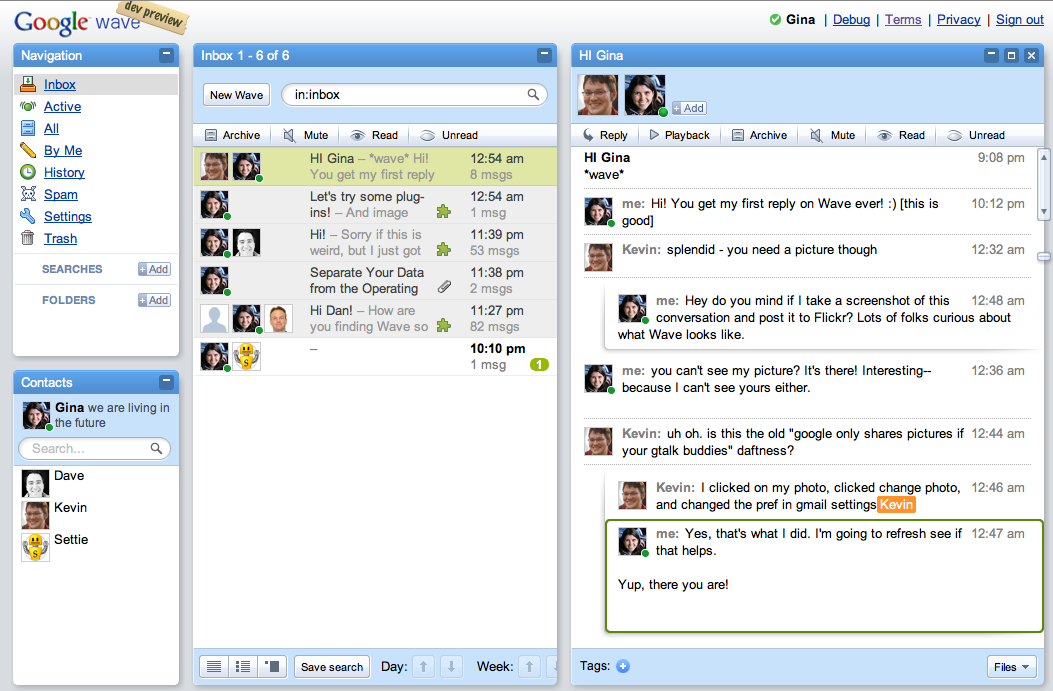Facebook at Work and Google Wave
Remember Google Wave?
Sure you do. You probably even recall nagging your friends and contacts for a (at the time) coveted invitation to join the Google Wave beta.
Google Wave was going to be the next big, big, transformative thing in workplace collaboration technology. It was the re-imagination of email, chat, file sharing, and 17 other things - packaged in a completely new way. It was, for a little while, exciting and cool. Most of the folks who get paid lots of money to prognosticate on such matters expected Google Wave to become, if not truly transformative, at least an important and eventual essential component in the enterprise software tool set.
Fast forward about a year (give or take) from the launch of Wave and somehow, for some reason, those optimistic forecasts about the importance of Wave turned out to be wrong. Wave did not catch on, at least not enough, and not as a workplace essential tool, and Google pulled the plug on the adventurous project. (Still, mad about that, personally.)
I have not thought about Google Wave all that much in the ensuing years, (man, it seems like just yesterday, but it has literally been YEARS since Wave was shuttered), until the recent announcement and reactions to the reports that Facebook is planning on releasing its own workplace collaboration technology, which most are simply calling 'Facebook at Work'.
But unlike Google Wave, which was greeted with (generally) optimistic predictions about its importance and relevance to work and workplaces, the early reaction to the notion of 'Facebook at Work' has been almost universally pessimistic and negative.
The arguments against the success of 'Facebook at Work' are numerous and expected:
People don't want to mix personal online socializing and networking with work.
Facebook can't be trusted to secure sensitive and proprietary corporate data.
Enterprise social networking tools, ironically often referred to as 'Facebook for the Enterprise', have been around for years, and have never really, truly caught on in a substantial way.
That kind of thing.
I have no idea if Facebook at Work will even be released as a product (Facebook has not made any public comment on these reports), much less become a successful, popular, and essential workplace collaboration technology.
Maybe it will. And maybe it will fail spectacularly like Google Wave. And maybe it will never even be a 'real' product.
Who knows?
But I would also suggest the litany of commenters and pundits who have already written off Facebook at Work as a potential important enterprise tech solution also have no real idea either.
Google Wave was going to be the next big thing. Until is wasn't. Facebook at Work has no chance of infiltrating the workplace. Until it does. Or maybe it won't.
I think you get what I am driving at by now. No one, not me, or any of the smart people at TechCrunch or Business Insider or CNet or anywhere else really knows.
So stop worrying or thinking about Facebook at Work for the time being. If and when it ever is released, then make your own evaluation.
And while you are waiting, maybe send an Email to Google to see if they will reconsider resurrecting Wave. I liked that thing.

 Steve
Steve


